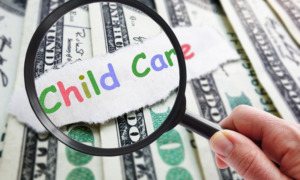 It is very likely that the teens we encounter know someone with a drug or alcohol addiction, considering that there are 17 million alcoholics and several million drug abusers in the United States, and each one affects about four other people, according to the National Institutes of Health. Plus, 86 percent of U.S. high school students say that some classmates are drugging, drinking and smoking during the school day, reports The National Center on Addiction and Substance Abuse at Columbia University.
It is very likely that the teens we encounter know someone with a drug or alcohol addiction, considering that there are 17 million alcoholics and several million drug abusers in the United States, and each one affects about four other people, according to the National Institutes of Health. Plus, 86 percent of U.S. high school students say that some classmates are drugging, drinking and smoking during the school day, reports The National Center on Addiction and Substance Abuse at Columbia University.
Opening up about sensitive subjects like substance abuse can be a challenge at any age, but for teenagers it may be extra difficult. It’s not cool to admit something is bothering them or to talk about something that makes them feel vulnerable. Mentioning a problem they’re having with an alcoholic or drug addict is a topic they might avoid at all costs. We who work with young people (I am a college professor and help to facilitate a teen support group) also can feel vulnerable when we have to communicate about sensitive or potentially volatile matters.
While we hope that we — and the teens we serve — will have the courage to engage in conversations about important matters like drug and alcohol abuse, we can also have inner conversations with ourselves to help us cope — and teach the young people we know how to do the same. I have a dear friend in Alcoholics Anonymous (AA), so I’ve made an effort to understand the 12-Step approach in AA, as well as Al-Anon Family Groups, for adults who have an alcoholic in their lives, and a teen support group called Alateen. As I learned about these support groups and the ideas that people help them cope, I came to realize that all of us who promote the growth and development of young people can use ideas from these recovery programs to maintain healthy perspective, and persevere in our communications.
Members of 12-step groups use numerous slogans in their recovery efforts. I have come to love the slogans, and I use them as healthy self-talk like doses of mental-health first-aid. Easy to remember and quick to apply in various situations, I’ve found them useful in my everyday life and in my work with college students. I’ve also published research about the language used in AA and Al-Anon literature and the ways they use language to promote healthy behavior. Some of that research is detailed in my book chapter, “Communication in Self-Help Support Groups: Positive Communication and the Al-Anon Experience” in Positive Communication in Health and Wellness, edited by Margaret Pitts and Thomas Socha.
What we tell ourselves, self-talk, as I call it, can significantly influence how we think and feel about ourselves and others. Self-talk can help us think clearly and get through some difficult situations more effectively. Some of these self-talk messages may be useful to share with the teens we work with, and they also can help youth workers keep a healthy perspective as we work through the challenges we face in supporting youth.
“We didn’t cause it, we can’t control it, and we can’t cure it” (The 3 Cs).
It’s not the teen’s fault if someone they love is an alcoholic or addict. Some teens think that if they can find just the right words or behave perfectly, the alcoholic in their life or the person suffering from addiction will stop. This is true about any complex ailment a teen faces in the family: poverty, mental illness, violence in the neighborhood… Recovery literature contains numerous testimonials that illustrate this tendency to desperately want to fix the alcoholic, addict, or problem.
We can make ourselves frustrated and compulsive if we think we can discover the exact words or actions to change another person who is struggling or suffering. Whether it’s a teen trying to help another teen, or professionals making sincere efforts to help young people grow and adopt healthier behaviors, we are not capable of controlling or curing others. It’s understandable that things can get so painful that we yearn for a solution to make the person better or resolve their suffering. But that unrealistic demand doesn’t fix anything and only makes us more frustrated and confused.
Guilt trips can be a common way people suffering from addiction try to manipulate others and shift responsibility onto others. That’s why the 12-step programs emphasize that members are powerless over addiction: It only makes their own lives unmanageable to believe they caused another person’s addiction, or if they believe they have the power or responsibility to change them. “The 3 Cs” slogan can help relieve guilt and anxiety, and it helps us professionals to remind ourselves of these limits on our ability to effect change in others, too. Ultimately, it is up to the other to change, no matter how hard we try.
“One day at a time.”
Being associated with an alcoholic or addict can stir frightening thoughts about the future. The 12-Step programs encourage a focus on today and making healthy, constructive decisions about what’s going on today, not a week or a month or a year from now. We waste sanity and energy focusing on future things over which we have no control. We all need to make plans as part of taking responsibility for our lives (e.g., what to do after high school), but self talk can help us find a healthy balance between living one day at a time and thinking constructively about the future. We can make more fulfilling use of the present by doing our best today. Our future is likely to be better if we don’t waste the present worrying about future scenarios that never come to pass.
“Live and let live.”
So, if loved ones and professionals can’t fix people they are concerned about, what to do? Self-help support groups urge a focus on living one’s own life as well as possible and to “let live,” by letting go of the preoccupation with trying to try to fix the alcoholic or addict. Self-care can include the basics, like getting enough sleep and eating a healthy diet. It also includes talking to at least one trusted person about concerns and about life’s good things, too. Sharing with someone who understands and does not judge is an important part of staying healthy emotionally. Another part of living well is developing the mind (education) and making the most of one’s talents or learning new skills. Having a constructive activity takes the mind off problems, can have an energizing and refreshing effect, and is a reminder that there is more to life than that one big worry.
“Easy does it.”
This slogan suggests patience with ourselves and others. We want things to happen fast; we want solutions to come quickly, completely. Yet, work and personal life often do not unfold that way. It takes time to get many worthwhile things done. Changing ourselves takes time, too. “Easy does it” is a reminder to do work on our own lives with patience and within a supportive self-help community.
“Progress not perfection.”
While members are encouraged to work on themselves and not the alcoholic or addict, this self-talk message reminds us no one is perfect and should not try to be. Self-improvement is a lifetime journey, and we can seek to make progress instead of trying to attain perfection. For teens this can be a helpful message because of the strong tendency to make comparisons with others. Some teens and some of us adults in our work settings mentally beat ourselves up because of the mistaken perception that others have it all together when we feel like we don’t. When that sneaky misperception creeps into our thinking, self-help support programs or healthy self-talk can encourage progress toward aspirations instead of unrealistic and unhealthy comparisons.
“HALT: Try not to get too Hungry, Angry, Lonely or Tired.”
If we find ourselves overreacting or going to extremes, chances are one or more of these four conditions is affecting us. On the way to making our own progress in our own way, we do sometimes get frazzled. A program of self-improvement involves making deliberate choices about how to act and respond to people and situations. We can respond more effectively to just about anything if we don’t get too hungry, angry, lonely or tired. We who work with young people can benefit from this adage, too.
“Keep coming back.”
Members of self-help support groups recommend regular attendance at meetings. And this kind of self-talk can be applicable in any setting. This slogan simply encourages participation in a healthy group activity to prevent isolation. We can feel alone when we have a big problem and imagine we’re the only one who has it. So breaking out of that isolation by connecting with trusted others gives strength and hope, whether it happens at an Alateen meeting or some other support group, or with a school counselor, relative, teacher or religious mentor. And for us professionals, we can keep coming back to the people and resources that sustain us or renew our motivation to make progress, not perfection in our work.
Self-talk using these and other slogans — along with reaching out to another human being we trust and respect — are two healthy coping skills teens can use in the midst of alcoholism or drug addiction in someone they know and care about. They can also be useful to us professionals as we strive to be a healthy influence on the young people we serve.
Chuck Aust is a professor of Communication at Kennesaw State University.
Illustration by Rainey Rawles.

























